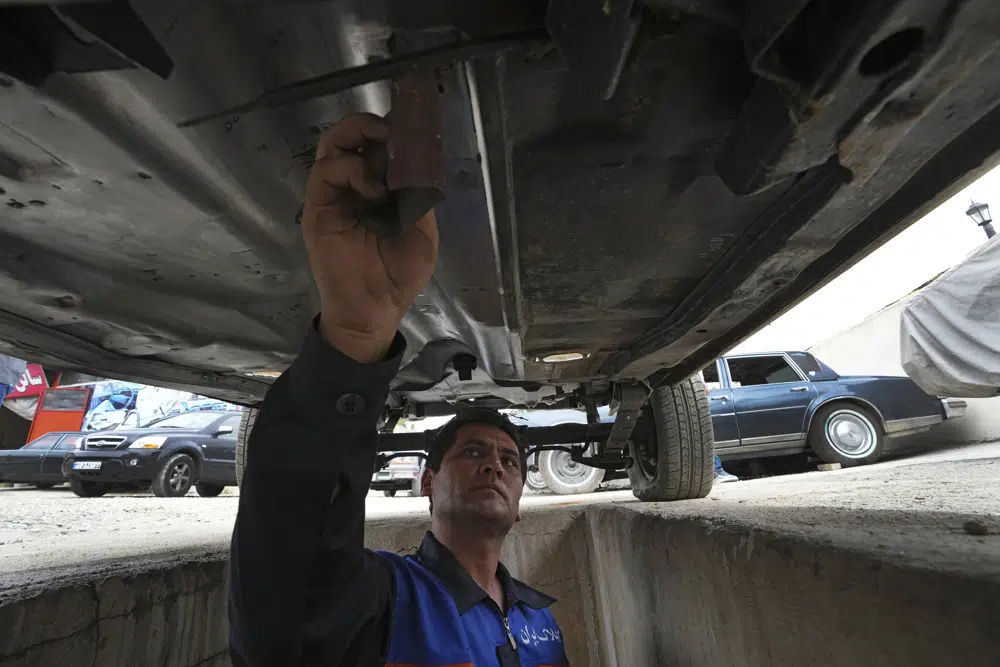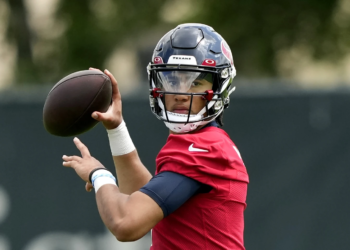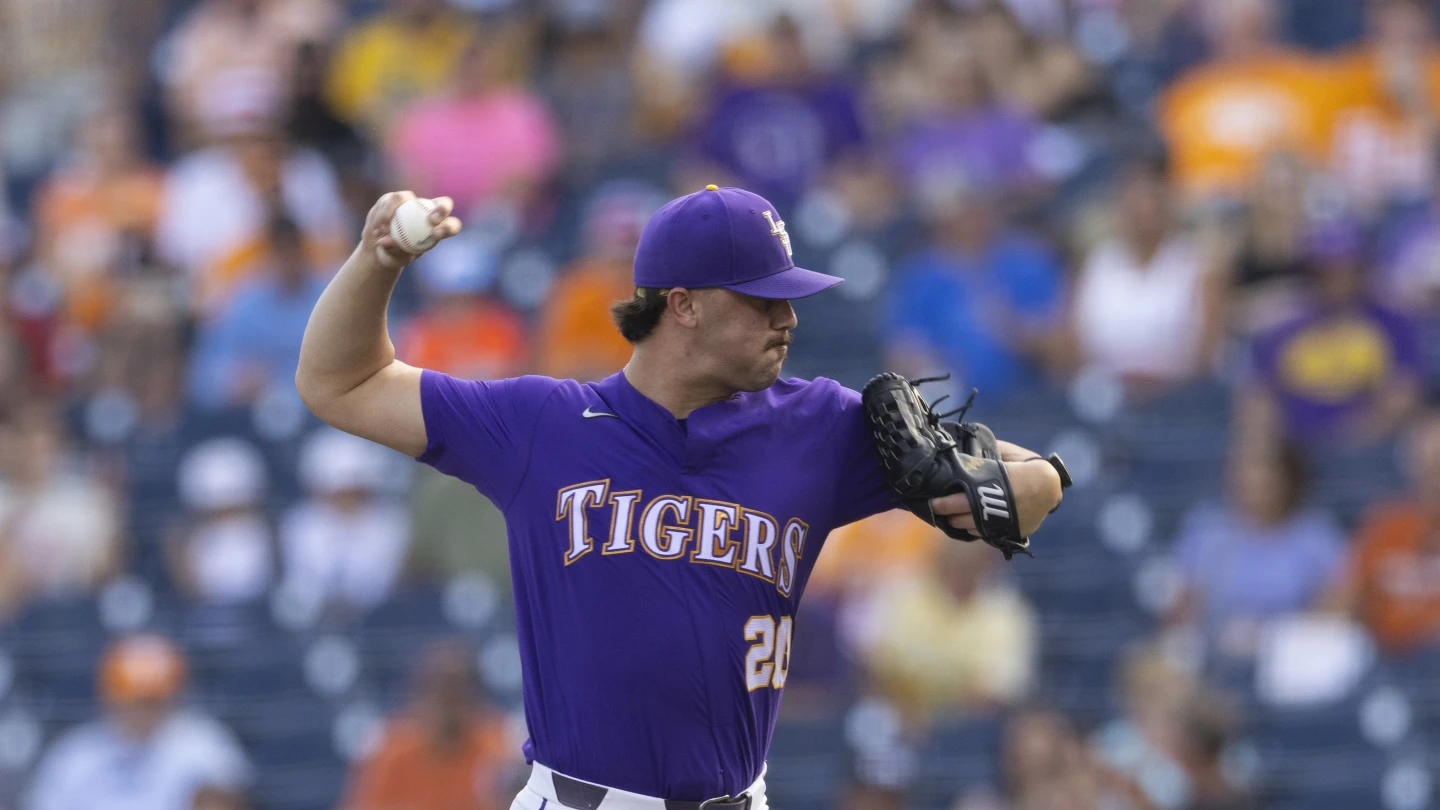In 2022, Calvin Ridley’s suspension for betting on NFL games was largely seen as an isolated incident in the context of legalized sports gambling within the four major North American professional leagues.
After serving a year-long suspension, Ridley expressed remorse and issued a lengthy apology, referring to his actions as a momentary lapse in judgment. He was subsequently reinstated in March.
However, the scenario took a different turn in April when three players faced disciplinary action for betting on NFL games, and two others were penalized for placing wagers on non-league games. This was followed by an investigation into another player this month. These incidents not only brought attention to the NFL but also sparked a broader discussion regarding the integrity of professional sports in the United States as legalized sports betting continues to grow.
Declan Hill, a professor at the University of New Haven who provides consultation for Interpol and has developed the first online anti-match-fixing education course, stated, “Leagues are engaging in a risky endeavor. This is how it unfolds: there will be a questionable and suspicious play, and sports fans will begin to question its legitimacy. Then, another such play will occur, followed by more. Over the course of a few years, the credibility of sports leagues will be undermined, as their fans debate their fundamental integrity.”
The conversation arises at a time when athletes in the United States find themselves more closely intertwined with gambling than ever before.
Athletes’ images are now being prominently featured in sportsbook advertisements, further highlighting their association with gambling. Moreover, sportsbook ads have gained significant visibility within stadiums and arenas, with some venues even hosting onsite betting facilities. A notable shift can be observed in Major League Baseball (MLB), historically known for its cautious stance on gambling, as it now allows its players to serve as ambassadors for gambling companies. This evolution demonstrates the increasing integration of athletes into the realm of gambling in the United States.
Legal sports betting in the United States has emerged as a lucrative revenue stream, with Americans wagering over $220 billion in the five years following the Supreme Court’s decision to allow states to offer sports betting. The NFL, NBA, MLB, and NHL have capitalized on this opportunity, monetizing their official data, which is crucial for in-game betting, by selling it to technology companies that distribute it to sportsbooks. These leagues have also formed partnerships with these tech companies to aid in detecting fraudulent activities.
However, the potential risks associated with gambling were underscored by Sportradar, a Switzerland-based company that has data and monitoring agreements with the NBA, MLB, and NHL. In its second annual report on “Betting Corruption and Match-Fixing,” released in March, Sportradar revealed that despite more than 99% of sporting events being deemed free from betting corruption based on data from its Universal Fraud Detection System in 2022, the threat remains persistent and continues to grow across the global sports landscape.
Sportradar’s systems identified over 1,200 suspicious games in 12 different sports across 92 countries last year, with the highest number of suspicious games (775) occurring in soccer. These findings serve as a reminder of the ongoing challenges and vigilance required to combat potential match-fixing and ensure the integrity of sports in the face of increased sports betting activity.
The rise of legal sports betting in the United States has created a significant revenue stream, with Americans wagering over $220 billion in the five years since the Supreme Court paved the way for states to offer sports betting. The NFL, NBA, MLB, and NHL have been major beneficiaries of this trend, as they sell their official data, crucial for in-game betting, to technology companies that distribute it to sportsbooks. In addition, these leagues have formed partnerships with these tech companies to aid in fraud detection.
However, the potential risks associated with gambling have been emphasized by Sportradar, a Switzerland-based company that has data and monitoring agreements with the NBA, MLB, and NHL. In its second annual report on “Betting Corruption and Match-Fixing,” Sportradar stated that while more than 99% of sporting events in 2022 were found to be free from betting corruption according to its Universal Fraud Detection System, the threat of corruption remains a constant and growing concern across the global sports landscape.
Sportradar’s systems flagged over 1,200 suspicious games across 12 different sports in 92 countries last year, with soccer having the highest number of suspicious games (775). Soccer is also the most bet-on sport globally, with $792 billion in wagers last year. Notably, among individual leagues per game, the NFL ranked behind only the UEFA Champions League and the English Premier League in terms of betting volume, with the NBA also making it into the top 10.
This evolving landscape underscores the proximity of athletes to gambling, as evidenced by the use of players’ images in sportsbook advertisements and the growing presence of sportsbook ads within stadiums and arenas, including those with onsite betting facilities. Even Major League Baseball, historically cautious about gambling, now permits its players to be ambassadors for gambling companies. The intertwining of sports and gambling raises important discussions about the integrity of professional sports and the potential impact on fans’ perception of their credibility.
Andreas Krannich, the managing director of Sportradar Integrity Services, acknowledges that match-fixing efforts are primarily found in lower-tier sports and leagues. However, he emphasizes that Sportradar is continuously striving to enhance its tools and technologies in a constant race to either catch up with or stay ahead of the criminals involved in such activities. The company recognizes the importance of being proactive in detecting and preventing match-fixing, safeguarding the integrity of sports events across various levels and disciplines.
Andreas Krannich, the managing director of Sportradar Integrity Services, acknowledges that corruption will always exist as long as there are human beings involved, including in the realm of sports. He recognizes the inherent challenge of combating corruption and highlights the importance of constantly updating tools and technologies to stay ahead of criminals.
Various technology companies employ similar monitoring methods to detect irregularities in the betting market, such as abnormal betting amounts on events. When suspicious activities are identified, these companies alert their clients, including leagues and sportsbooks, about possible manipulation.
The NFL has partnered with Genius Sports since 2021, while the NBA extended its agreement with Sportradar in the same year. Sportradar is also incorporated into the protection measures of the NHL and MLB. Other companies like StatsPerform, Swish Analytics, and U.S. Integrity serve as distributors of MLB’s data in the United States. While most contracts allow tech companies to sell odds and real-time stats for in-game betting products, there are exceptions. U.S. Integrity, which is used by MLB, the NBA, and several sportsbooks, remains independent and does not create betting products for sportsbooks.
There is a potential conflict of interest in the monitoring industry, as these companies primarily work for the leagues that pay their bills, rather than the general public. This raises concerns about transparency and the sharing of information received from monitoring companies with the public, which could help reassure bettors.
While monitoring has helped in tipping off the NFL in certain instances, the league assures that no inside information or games were compromised. However, NFL spokesman Alex Riethmiller acknowledges the important role that companies like Genius Sports play in protecting the integrity of the game by monitoring unusual activities and facilitating information-sharing across the industry.
The lucrative nature of the monitoring companies’ deals with the leagues is evident. Genius Sports reported $209 million in revenue in 2021 from its betting technology, content, and services division. The Big 4 leagues have rules prohibiting their employees and players from betting on their own games, but not on other sports.
The leagues support monitoring companies by providing lists of restricted individuals who are prohibited from betting on their respective sports. Additionally, they conduct annual training for players and personnel to increase awareness about the potential risks associated with gambling.
The ultimate concern is that gambling by players and league personnel could make them vulnerable to sharing inside information, which could benefit match-fixers. The daily fantasy sports industry faced allegations of cheating in 2015 when a DraftKings employee was accused of using insider knowledge to win a contest offered by competitor FanDuel.
While integrity remains a top priority for sportsbooks like FanDuel, there are challenges in regulating the legal market in the U.S., as it is done on a state-by-state basis. The information collected by state gambling commissions is not centralized, and law enforcement agencies like the FBI focus primarily on policing the illegal market. Instances of investigating match-fixing attempts have often relied on human intelligence rather than information provided by monitoring companies.
John Holden raises a valid point that while monitoring algorithms are sensitive, they are not foolproof and may not catch every instance of suspicious activity. The reliance on someone talking or the league’s investigator finding something suspicious indicates that there are still limitations to the system. Holden acknowledges that despite its flaws, the monitoring system is generally a positive force compared to the unregulated market, particularly due to the presence of anti-money laundering rules.
However, the threat from criminal elements persists, and top match-fixers are continuously adapting to stay ahead of detection systems. Holden believes that attempted fixed games in the future are a possibility.
Declan Hill proposes a four-pronged approach to ensure the long-term health of the U.S. sports betting market. These include creating a clear separation between bookmakers and sports leagues, establishing an independent monitoring agency funded by sportsbooks to eliminate conflicts of interest, intensifying discussions about addiction and problem gambling, and eradicating the practice of tanking in sports.
Hill emphasizes that the credibility of sports leagues is crucial to their success, and any doubts or loss of credibility among fans can have detrimental consequences. Thus, implementing these changes is seen as vital in protecting the integrity of the leagues and avoiding potential scandals.































